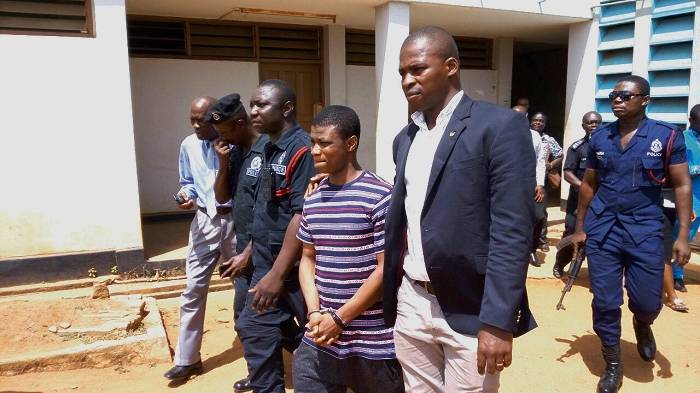The murder case involving Daniel Asiedu, accused of killing former Abuakwa North MP JB Danquah, has taken a new turn. The trial, which has been ongoing for several years, will now be retried after the jury’s verdict was inconclusive. The jury delivered a split decision of 4:3, with four jurors voting not guilty, which led the presiding judge, Justice Lydia Osei Marfo, to discharge the jury. According to Section 285(4) of the Criminal and Other Offenses (Procedure) Act, 1960 (Act 30), a hung jury results in an inconclusive verdict, prompting the judge to order a retrial.
Despite the jury’s decision, Daniel Asiedu remains in police custody as ordered by the judge. The case, which dates back to February 2016, has been marked by numerous twists and turns. Asiedu was arrested after he allegedly broke into the home of the late MP JB Danquah, robbing and fatally stabbing him in his own house. The prosecution claims that Asiedu stole several items, including three mobile phones, from the MP before fleeing the scene.
In 2021, after undergoing a psychiatric evaluation and being declared fit to stand trial, Asiedu’s case proceeded to court. The retrial is expected to address unresolved questions and provide a conclusive resolution to this high-profile case, which has captured national attention.
The facts of the case are troubling. On the night of the murder, Daniel Asiedu allegedly climbed into the house of JB Danquah using a ladder, which was placed by the security officer on duty. The security guard reportedly fell asleep during his shift, leaving the MP vulnerable. Asiedu then allegedly struggled with the MP, overpowered him, and stabbed him multiple times in the chest and neck before fleeing the scene with three of the MP’s mobile phones.
A key piece of evidence was found in the aftermath of the crime. Police investigators discovered that Asiedu had a knife wound on his hand, which he attempted to wash off at a nearby house. The investigation also uncovered that the accused had given the stolen phones to a family friend of his girlfriend to charge and unlock. This individual, who was later identified as the third prosecution witness, testified that Asiedu had asked him to unlock the phones, one of which contained photos of the deceased MP. This discovery was pivotal in connecting Asiedu to the crime.
In addition to the testimony of the family friend, the prosecution called several other witnesses to prove its case. The first witness, Samuel Berko Sarkodie, who was the MP’s driver, testified about the events of February 8, the day of the murder. He explained that he had driven the late MP to various meetings during the day before dropping him off at his house around 11 pm. Sarkodie later received a call informing him of the robbery and subsequent murder of the MP.
Another witness, Stephen Apraku, the security guard on duty that night, confirmed that he had seen the ladder in an unusual position leading to the MP’s room. He raised an alarm, which led to the arrival of police officers who discovered the MP’s body in a pool of blood.
Two of the accused’s family members also testified. Ken Koranchie, a family friend of Asiedu’s girlfriend, confirmed that Asiedu had handed him two of the stolen phones on the night of the murder. After charging and unlocking the phones, Koranchie discovered disturbing images of the murdered MP on one of the phones. Realizing the gravity of the situation, he contacted the police, which led to Asiedu’s eventual arrest.
The prosecution also called several expert witnesses. The pathologist testified that the cause of death was exsanguination, resulting from stab wounds to the chest and neck. The DNA analyst confirmed that traces of Asiedu’s DNA were found at the crime scene, and the investigator testified that Asiedu had confessed to committing the crime.
However, the defense team, led by Rev. Yaw Darkwa, challenged the prosecution’s case. The defense argued that the evidence presented by the state was circumstantial and not conclusive. They questioned the reliability of forensic tests, such as the alleged murder weapon, a shirt with bloodstains that was never tested. They also questioned the competency of the DNA expert, claiming that the DNA report was conducted by a third-party company without proper oversight. Furthermore, the defense lawyer raised doubts about the validity of the pathologist’s report, which was written two years after the autopsy was conducted.
Despite these concerns, the jury ultimately returned a split verdict, with four jurors voting not guilty and three voting guilty on both charges of murder and robbery. This resulted in the case being declared inconclusive, and the judge ordered a retrial.
As the legal process continues, the retrial promises to shed more light on this high-profile murder case. The court aims to address the remaining questions and provide justice for the family of the late JB Danquah.




No comments yet
Be the first to share your thoughts!